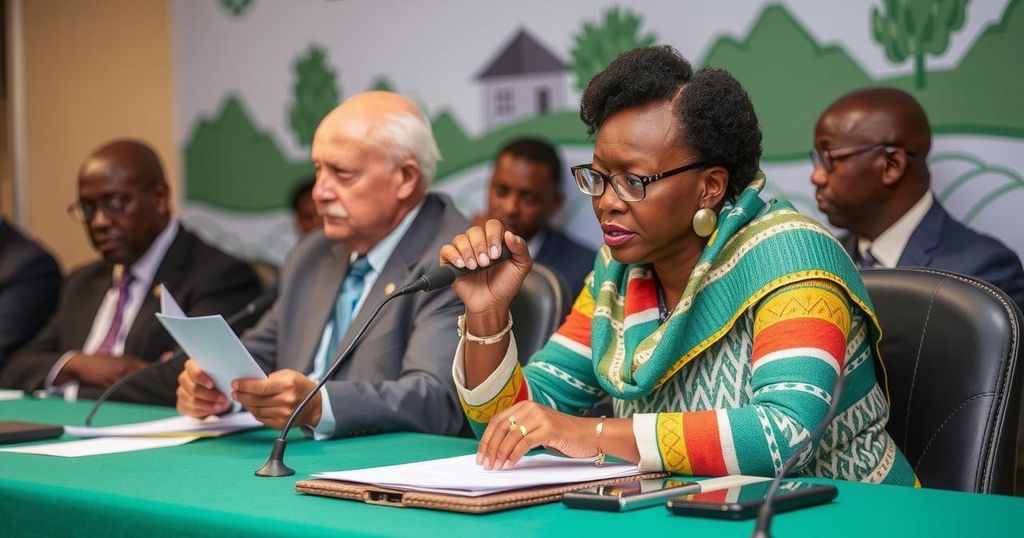During his visit to Lesotho, UN Secretary-General Antonio Guterres urged wealthy nations to fulfill their commitments regarding climate finance for poorer countries. He emphasized the urgency of meeting the $300 billion annual funding target established during recent climate talks, underscoring Africa’s unique vulnerabilities to the impacts of climate change. Guterres also expressed support for Africa gaining permanent representation on the U.N. Security Council and announced plans to visit the Katse Dam as part of his trip.
In a compelling address to Lesotho’s Parliament, United Nations Secretary-General Antonio Guterres called upon affluent nations to fulfill their commitments to assist poorer countries, particularly in Africa, in combating the adverse effects of climate change. During his visit, which forms part of a three-day tour in southern Africa, Guterres emphasized the need for a substantial financial injection to developing nations—an amount agreed upon at the recent U.N. climate talks in Azerbaijan—to address their climate-related challenges.
Despite Africa’s minimal contribution to global greenhouse gas emissions, the continent is disproportionately impacted by climate change. Guterres remarked that developed countries must honor their pledged commitment of $300 billion annually for climate finance, particularly stressing the vulnerability of landlocked nations like Lesotho. He also highlighted the importance of swiftly operationalizing the newly established Loss and Damage Fund to aid affected countries.
Guterres’ visit underscores the urgency of financial support as Southern Africa grapples with severe drought conditions and a resultant hunger crisis affecting over 27 million individuals. This drought has been exacerbated by the ongoing El Niño phenomenon, along with other environmental crises attributed to climate change.
While addressing broader governance concerns, Guterres reiterated his hope for African representation in the U.N. Security Council, proposing that at least two permanent seats be allocated to the continent by December 2026. He condemned the lack of such representation as an ongoing injustice and a remnant of colonialism that contradicts contemporary governance principles.
On the agenda is Guterres’s visit to the Katse Dam, which plays a crucial role in Lesotho’s water management strategy and aims to alleviate South Africa’s water shortages through the Lesotho Highlands Water Project. This project exemplifies how water sharing can strengthen regional cooperation amid shared challenges such as climate change and resource scarcity.
The discourse surrounding climate finance, particularly in the context of developing nations, is becoming increasingly critical as the effects of climate change intensify. In recent years, the United Nations has sought to address these disparities by encouraging wealthier nations to support those most impacted by environmental changes. The disparities rooted in historical injustices and colonial legacies further complicate this relationship, particularly as African countries strive for representation in global governance frameworks like the U.N. Security Council. South Africa and its neighbors face daunting climate challenges, including severe droughts and food insecurity, accentuating the urgent need for international assistance and cooperation to build resilient communities.
In conclusion, Secretary-General Antonio Guterres’s visit to Lesotho serves as a critical reminder of the pressing climate finance crisis facing developing nations. His calls for rich countries to meet their financial commitments underscore the urgent need for action amidst the devastating effects of climate change. Additionally, his advocacy for improved representation of African nations in global governance highlights the necessity for systemic change in international decision-making processes to address historical inequities.
Original Source: www.independent.co.uk






